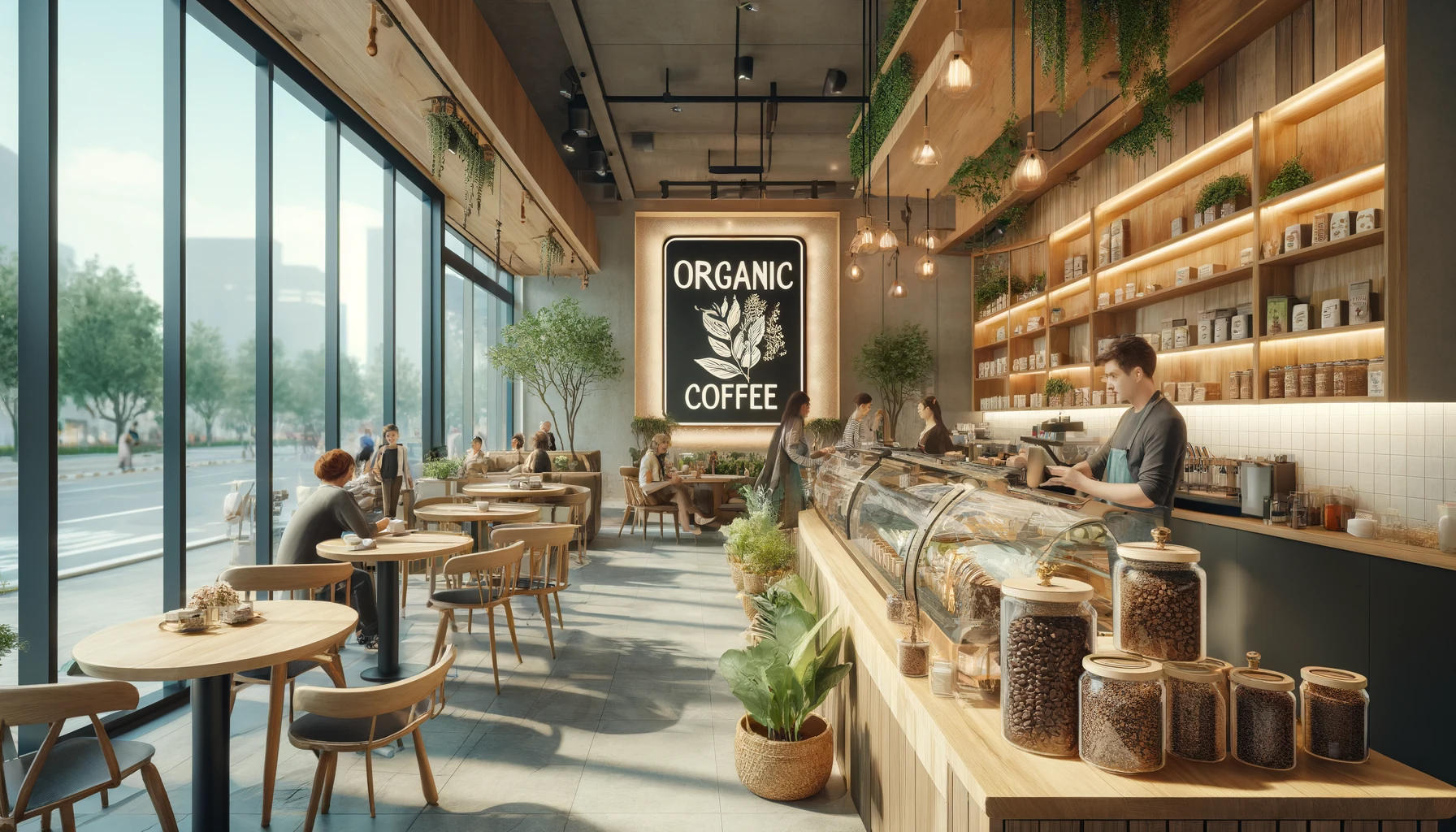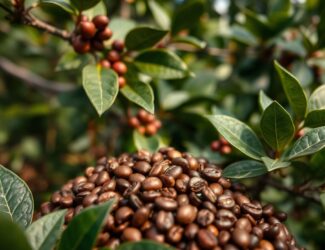
Organic Coffee Poised for Significant Growth in the Coming Years
Organic coffee is making a notable comeback on roasters’ menus, with recent market observations showing a significant increase in sales. Despite a period of lagging behind other certified coffee categories, organic coffee is now demonstrating steady growth and a compelling value proposition.
In 2021, the global organic market was valued at $133 billion, with the highest demand for organic coffee in North America, Germany, and France. Notably, between 2020 and 2021, while the minimum certified coffee area decreased by 2.5%, organic coffee saw a remarkable 24.6% increase. This surge in demand is attributed to growing consumer awareness of global climate issues and the increasing environmental consciousness among new generations.
Organic, regenerative, and other sustainable agricultural production systems are trending due to a combination of consumer demand and new corporate sustainable due diligence regulations. These regulations pressure companies and producers to invest in more sustainable value chains and production systems. Coffee grown and processed without synthetic fertilizers, pesticides, or other chemicals offers reassurance to both consumers and regulators, contributing to greener practices that allow nature to regenerate.
Despite the premium price attached to organic coffee, consumers remain largely undeterred, and the segment continues to expand. The simplicity and recognizability of the “organic-certified” label play a significant role in this trend. With a plethora of sustainability-oriented certifications such as Fairtrade, Rainforest Alliance, Bird Friendly, and 4C, consumers often experience label fatigue. The continuous emergence of new labels and certifications can be confusing and exhausting, leading to disengagement on sustainability issues. However, organic stands out due to its straightforward concept and established reputation.
Martin Mayorga, Founder and CEO of Mayorga Coffee, the largest exclusively organic coffee roastery in the US, highlights the appeal of the organic label. He states, “The organic label is easier to understand – it will always succeed because it ensures verified practices linked to soil protection, farmer health, and consumer health. There are few grey areas, and you can ultimately test products for pesticides.”
However, not everyone is convinced. Some argue that the higher production costs cannot be justified as consumers may be unwilling to pay prices that reflect the increased overheads. Additionally, the certification process is seen as overly cumbersome and expensive for small-scale farmers to achieve. Martin Mayorga acknowledges these challenges, stating, “The certification process requires effort, organization, and a commitment to sound organic practices. That’s why roasters should work in partnership with farmers and assume some of the overheads. At Mayorga, we’ve supported producers with costs and provided agronomists to support the process.”
The proliferation of different certifications and labels points to the growing trend that “just” coffee no longer suffices. Among young consumers, there is a demand for coffee that provides something more than just a beverage. Organic coffee delivers on both health and sustainability benefits, aligning with the values of these consumers. As Martin Mayorga puts it, “Fortunately, consumers these days want to be part of something that goes beyond high quality and good value – something that also creates a positive impact.”
The association of organic products with healthy living is strong among consumers, even though there is ongoing debate about the proven health benefits of drinking organic coffee. The rising interest in health-based coffee marketing and products, such as coffee for runners or natural energy boosters, reflects this trend. Despite economic downturns and cost-of-living crises, younger demographics continue to prioritize health in their purchasing choices. This indicates that coffee brands investing in the organic segment are likely to see long-term benefits if younger consumers remain loyal.
Beyond consumer preferences, the health and wellness of coffee’s production environment, including its growers, are paramount. Long-term commitment to organic coffee will solidify if all parties in the coffee sector understand its holistic value across the supply chain and commit to it beyond the bottom line. Martin Mayorga emphasizes the importance of this understanding, saying, “Industry players need to genuinely understand and care about the impact of harsh chemicals on the soil, surrounding bodies of water, and the people who live on and near the farm. Very few roasters are aware of how incredibly damaging conventional farming is to communities and coffee farmers. Those of us who understand that, understand that organic is a commitment to our future. It needs to stop being a movement and go back to being how nature intended our food and communities to be.”
The return to popularity of organic coffee comes as no surprise in a time when concerns about the health of both people and the planet are at the forefront. Consumers are gravitating towards greener, healthier options, and the demand for organic coffee is growing. Producers and roasters are responding to this demand, and it will be interesting to see what other value propositions arise to cater to these trends in the industry. Regardless, the organic label seems to have a secure place in the future of the coffee industry.



